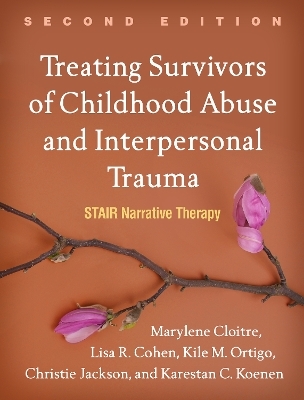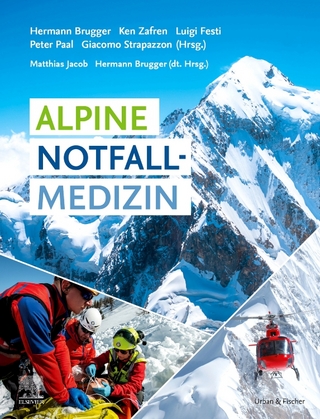
Treating Survivors of Childhood Abuse and Interpersonal Trauma, Second Edition
Guilford Press (Verlag)
978-1-4625-4329-8 (ISBN)
New to This Edition
*Reorganized, simplified sessions make implementation easier.
*Additional session on emotion regulation, with a focus on body-based strategies.
*Sessions on self-compassion and on intimacy and closeness in relationships.
*Chapter on emerging applications, such as group and adolescent STAIR, and clinical contexts, such as primary care and telemental health.
*Many new or revised handouts--now downloadable.
*Updated for DSM-5 and ICD-11.
Marylene Cloitre, PhD, is Associate Director of Research in the National Center for PTSD Dissemination and Training Division, Palo Alto VA Health Care System; Clinical Professor (Affiliate), Department of Psychiatry and Behavioral Sciences, Stanford University; and Research Professor, Department of Psychiatry, NYU Langone Medical Center. Dr. Cloitre’s primary clinical and research interests are the developmental consequences and treatment of childhood abuse in adults and adolescents. She is the recipient of the Award for Outstanding Contributions to Practice in Trauma Psychologyfrom Division 56 of the American Psychological Association, is past president of the International Society for Traumatic Stress Studies, and was a member of the World Health Organization's ICD-11 working group on trauma spectrum disorders. Lisa R. Cohen, PhD, has maintained a private practice in clinical psychology in New York City since 2001. Dr. Cohen specializes in the treatment of trauma and stress-related disorders, as well as co-occurring anxiety, mood, eating, and substance use disorders. Previously, she was a Research Scientist at the New York State Psychiatric Institute at Columbia University Medical Center, where she focused on developing, evaluating, and disseminating evidence-based psychotherapies for PTSD and substance use disorders. Kile M. Ortigo, PhD, is Program Director in the National Center for PTSD Dissemination and Training Division, Palo Alto VA Health Care System. He leads a national initiative to evaluate and implement webSTAIR, an online program based on STAIR. Dr. Ortigo's research and writing have largely focused on personality, trauma, adult attachment, and lifespan developmental models of self. He has a private practice in Palo Alto, California. He serves as the lead editor for Psychedelic Support, an online resource and directory of clinicians. Christie Jackson, PhD, is Director of Clinical Training for webSTAIR, an online program based on STAIR. Since 2005, Dr. Jackson has maintained a private practice in clinical psychology in New York City. She formerly served as Director of the PTSD Clinics at the Manhattan and Honolulu VA Medical Centers. She has worked with Marylene Cloitre since 2007 on numerous projects to evaluate and disseminate STAIR within the VA and in the community. She currently serves as Lead Trainer for the STAIR Institute. Karestan C. Koenen, PhD, is Professor of Psychiatric Epidemiology at the Harvard T. H. Chan School of Public Health. She uses a developmental approach to understanding the epidemiology of trauma exposure and stress-related mental disorders such as PTSD and depression. Dr. Koenen is a recipient of the Award for Outstanding Contributions to the Science of Trauma Psychology from Division 56 of the American Psychological Association and the Robert S. Laufer, PhD, Memorial Award for Outstanding Scientific Achievement from the International Society for Traumatic Stress Studies. Dr. Koenen also advocates for survivors of violence and trauma.
I. Theoretical Frameworks
1. A Resource Loss Model
2. Attachment: When Protector and Perpetrator Are One
3. Development in the Context of Deprivation
II. Foundations of Treatment
4. Treatment Rationale
5. Building Emotional and Social Resources: Overview of STAIR
6. Working with Traumatic Memories: Overview of Narrative Therapy
7. Extending the Narrative: Transforming Shame and Loss
8. Guidelines for Implementing Treatment
9. Assessment of Client and Match for Treatment
III. STAIR Narrative Therapy, Session by Session
- Module I. Skills Training in Affective and Interpersonal Regulation (STAIR): Building Resources
10. Session 1. The Resource of Hope: Introducing the Client to Treatment
11. Session 2. The Resource of Feeling: Emotional Awareness
12. Session 3. Emotion Regulation: Focus on the Body
13. Session 4. Emotion Regulation: Focus on Thoughts and Behavior
14. Session 5. Emotionally Engaged Living: Distress Tolerance
15. Session 6. The Resource of Connection: Understanding Relationship Patterns
16. Session 7. Changing Relationship Patterns: Focus on Assertiveness
17. Session 8. Changing Relationship Patterns: Managing Power
18. Session 9. Changing Relationship Patterns: Increasing Closeness
19. Session 10. Self-Compassion and Summary of Skills Training
- Module II. Narrative Therapy: Facing the Past and Imagining the Future
20. Moving from Skills Training to Narrative Therapy: How Do You Know Your Client Is Ready?
21. Session 11. Introduction to Narrative Therapy
22. Session 12. Narrative of First Memory
23. Sessions 13–17. Narratives of Fear
24. Sessions 13–17. Narratives of Shame
25. Sessions 13–17. Narratives of Loss
26. Session 18. The Final Session
27. New Developments for STAIR Narrative Therapy
References
Index
| Erscheinungsdatum | 10.07.2020 |
|---|---|
| Verlagsort | New York |
| Sprache | englisch |
| Maße | 203 x 267 mm |
| Gewicht | 1300 g |
| Themenwelt | Medizin / Pharmazie ► Medizinische Fachgebiete ► Notfallmedizin |
| Medizin / Pharmazie ► Medizinische Fachgebiete ► Psychiatrie / Psychotherapie | |
| Medizin / Pharmazie ► Studium | |
| Sozialwissenschaften ► Soziologie | |
| ISBN-10 | 1-4625-4329-4 / 1462543294 |
| ISBN-13 | 978-1-4625-4329-8 / 9781462543298 |
| Zustand | Neuware |
| Haben Sie eine Frage zum Produkt? |
aus dem Bereich


